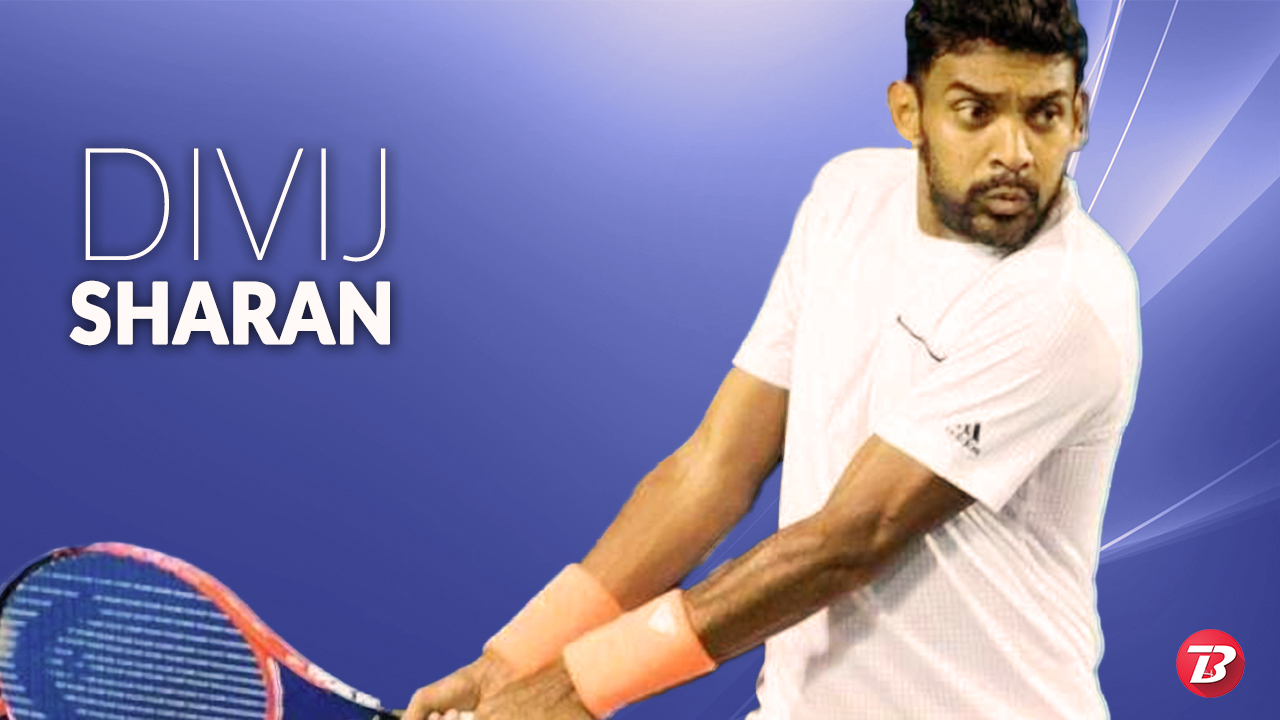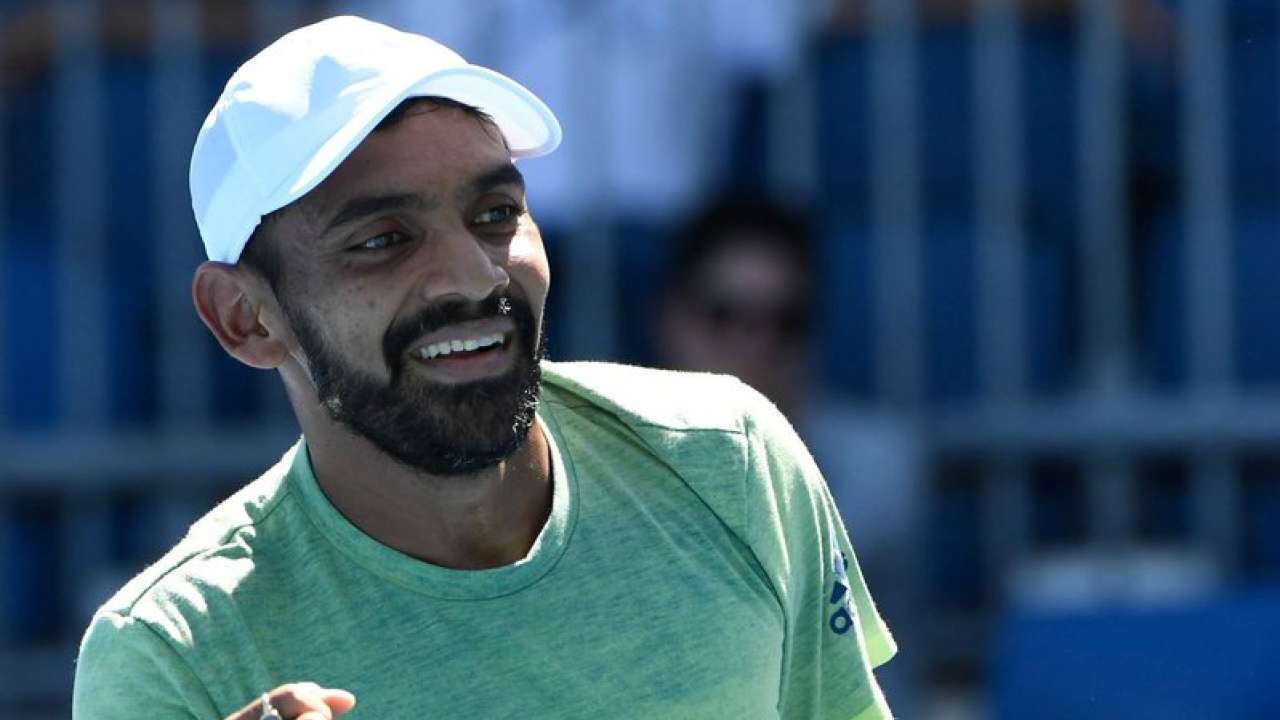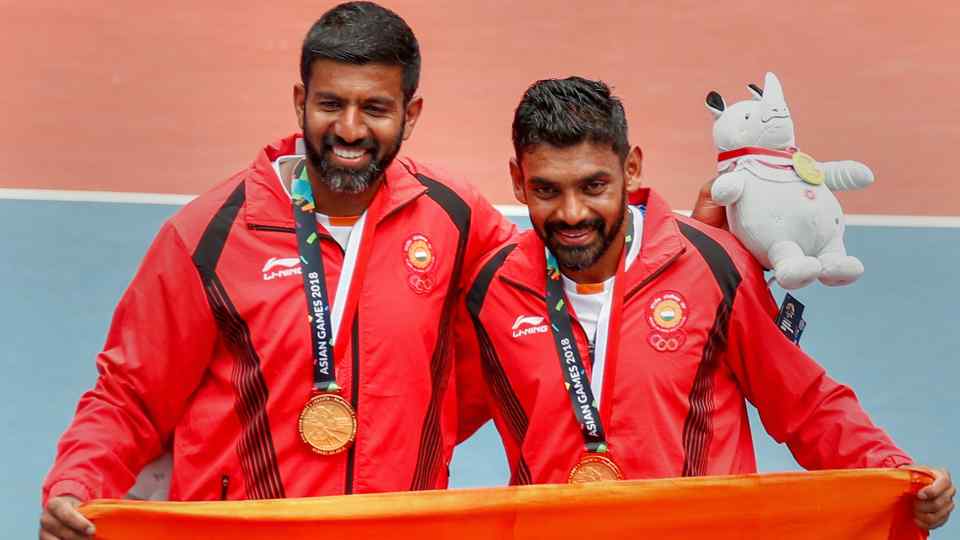Featured
It is a very good time for sports in India: Divij Sharan

This is about a sporty, energetic kid in Modern School, Vasant Vihar. For him every sports day and participating in different races was a way of life in the growing up years. Until one beautiful sports day, life was about to change. The approach to a magical transformation of that child into a professional tennis player was about to be paved. The journey began, and the toil honed him into a jewel in the crown of Indian tennis. Meet Asian Games Gold Medalist, India’s second-ranked doubles tennis player, Divij Sharan.
“I was always this energetic kid in school taking part in every sports day, participating in various races. When I was in Class three, I was a 7-year old then, and it was a sports day when they announced that a tennis academy was coming up in our school. My dad came and asked me if I would like to play tennis, and I said why not and that is how I started playing,” he says during a conversation with The Bridge.
It was then that Sharan picked up the racquet for the first time. Few years down the line, he played his first tournament and won four rounds. It was surprising for his coach too as the wins came quite unexpectedly.
“Honestly no one was expecting that I would win these rounds. My coach thought that there was something in me and put me into a special group of players who were more serious towards tennis.”
The journey of transition
Time was moving. The training had begun. Sharan turned twelve, and he played for Delhi in the school games. Two years later at fourteen years, Divij played for the Junior Davis Cup. He then played at the Junior Grand Slams when he was eighteen years old.
“It was when I played at the Junior Grand Slams that it felt a bit more realistic. Obviously, I wanted to become a professional tennis player and play for India. But after the Slams, it was clear that this is it on which I need to focus and let go of other things.”
Sharan’s best Junior World Doubles ranking was No. 5 in 2003. His best Junior Grand Slam result was a semi-final appearance at the 2004 French Open where he partnered with compatriot Tushar Liberhan.
Also read: Jeevan Nedunchezhiyan, an exemplar of consistency
The long road took Divij on a voyage that he knew was never going to be a cakewalk. But when you are set on a mission, there is no looking back. Divij was training to face every situation and not let anything mar his spirits.
“It has been a long journey since then. Even after I finished my junior days, to go through the grind from ITF Futures which I played for many years was tough. That time I was focusing on both singles and doubles although I was always better at doubles.”
There are times in the life of athletes when they have to make a concrete decision to enable them to make a single goal as a focal point. And so happened with Divij. He had to decide that he was going to play only doubles and the next steps fell into their places automatically.
“I started doing well in doubles, and that was when I had to make a conscious decision to kind of focus only on doubles. It is when I started playing the Challengers. I played Challengers too for quite a few years and then moved to ATP tournaments and Slams," he says.
"I am still looking to get inside the top 30 so that I can be more or less assured of being able to play all the big tournaments. Right now I am not able to get into the Masters 1000 events. So that is what my immediate goal is. I guess few wins in a big tournament should set me up in the rankings.”
On turning professional
Divij turned pro in 2004. He started developing into a Doubles specialist. Accolades began pouring in the form of titles. He won his first Futures doubles title in 2007. Divij tasted the first Challenger title in 2011 by lifting the Ningbo Challenger title in China. He accumulated 16 ITF and one Challenger title by the year 2011.
The year 2012 was the year when fortunes changed for Divij. He reached 8 Challenger finals and won two Challenger titles, the Busan challenger with Yuki Bhambri and the Bangkok Challenger with Vishnu Vardhan. Divij also made his Davis Cup debut that year in September against New Zealand.
 Yuki Bhambri and Divij Sharan
Yuki Bhambri and Divij Sharan This year Divij, who was selected into the Davis Cup squad, had to withdraw from the tie against Serbia that was scheduled in Kraljevo due to a shoulder injury.
“It was indeed very unfortunate. Events such as Asian Games, Davis Cup and other team games come rarely, and it is indeed a privilege playing exclusively for the country. I have played just one Davis cup tie so far that was in Chandigarh against New Zealand, and I was looking forward to playing. Luckily though, the injury was not so serious except that they advised me three weeks off. So I had to miss the Davis Cup week, and I also had to pull out of the tournament in Metz that I was supposed to play,” he recalls.
Also read: Indian tennis in the rising
Divij Sharan continued the sojourn, and in 2013, he along with Purav Raja clinched their first ATP title at the Claro Open Bogota. His biggest dream came true when they as a pair qualified for the Wimbledon championships. They bowed out in the opening round, but that certainly infused confidence that took them places in the times ahead. Divij also qualified for the US Open that year partnering with Lu Yen-Hsun and made it to the third round in New York. This was that turning point when the Delhi star broke into the top 100 to finish at World No 71 in that season.
The Grand Slam highs and how they serve as a boost
The World No 36 has registered some brilliant runs at the biggest stage of the ATP, that is the Majors. It all began with a third-round appearance at the US Open in 2013, then in 2017, a third-round finish at Roland Garros. This year though has been the most pivotal period of Divij’s career. He reached the third round at the Australian Open in Melbourne and his career-defining quarter-final run at the Wimbledon. Divij reached his career-high ranking of No 36. With these remarkable wins, The Indian is moving closer to Grand Slam glory.
“Well it is not easy to say that but yes obviously this year and last year too I have played some pretty close matches against some excellent teams. This year at Wimbledon we lost against the eventual winners, we lost in four close sets. In the Australian Open third round, we lost against the top seeds. We were up a set there. So I am playing close matches against teams who are going ahead and winning the Slams. Hence I think it is just a matter of time. I have to be persistent and put in that extra effort or whatever it takes.”
When we asked Divij about what effect do these wins at the monumental stage of a Grand Slam, have on him and He very humbly said,
“Before it was a bit overwhelming to be playing at a Grand Slam, like the first few Slams that I played but now it seems very much realistic. Like I am winning matches, going deeper into the tournament and so if I keep pushing myself and putting that extra effort then it is achievable, winning a Major. It seems pretty realistic after the recent results that I have had.”
The 6 feet tall Divij is towering inbuilt but a humble human being who feels every win helps as a beacon of a learning experience. This year the Indian also secured his first win at an ATP 500 in Washington and against the Great Leander Paes at that.

“It is like any other match. Once I step on the court, it does not matter who I am playing against. It could be Asian Games, it could be a match I am playing for Indian Oil in the Petroleum sector, or it could be a match at my regular tournaments. So my job is to go out there and play my game and not bother about who is on the other side. Yes, but regarding tactics, I will play in a certain way against who I am playing with. But that is what we train for. You do not play the situation; you play your game. Also, doubles matches are very close, and that match was very close too. I was happy that I got my first 500 win that day.”
Reflecting on the recent Asian Games Gold Medal
Divij has earlier won a Bronze Medal at the Asian games in 2014 Incheon. But this year, the left-hander has gone beyond all. He and Rohan Bopanna who is the country’s top-ranked doubles player went to clinch the gold medal in this year’s edition of the Games in Indonesia.
“Yes, it feels great. Especially after the Asian Games, I have got a chance to look back on my journey till now. It has been tough at times, and it is great to see all my hard work being paid off. I am still going strong to achieve more things, and it is indeed very motivating these milestones.”
The doubles have always been the strength of Indian tennis. It indeed encourages more and more young athletes to pick up the sport.
 Asian Games 2018
Asian Games 2018 When asked about how Divij feels this encourages the sport in our country, he answered with a spark of joy in his voice.
“It is very encouraging truly. I think Leander and Mahesh are the first few people to set the trend. They both have been at the top of the rankings. Rohan has been as high as World No 3 in the ATP rankings. This gives you the belief that it is achievable. Indians have always been great in Doubles. We have had as many as 7 or 8 in the top 100 in the recent years which is indeed a very commendable achievement for a country. Tennis is a sport that is played globally by almost every country, and so it is not easy to have this kind of a statistic. Even Sania Mirza has done very well. She has been at the zenith of the rankings too, and I think it is great for Tennis in India. Am sure more and more kids are going to pick up tennis racquets in the times to come.”
The kind of training before every match that these athletes go through is indeed very intriguing for fans. And so we asked Divij to take us through his routines before and after the events.
“All the preparation before matches is same for each match. Of course, it depends on what time in the day you are playing, what conditions there are, the availability of practice courts or how early or later it is in the season. These things do determine, but otherwise, it is a specific routine. Even though our matches are an hour or two, it is a full day job. I have the stretching, the gym session and stuff that keeps me busy for almost two to three hours even after the match.”
The season is nearing a close, and we asked him to enlighten us about his plans for the next one or two months before the season officially ends.
“There are four tournaments left in the remainder of this season. Two of them are ATP 1000s, and one is a 500 and another a 250 event. Ideally, I am hoping to be able to play all of them and also looking forward to going deeper into one of the bigger tournaments. I am also hoping to defend my title in Antwerp, an ATP 250 tournament that I won last year. But to be honest, I am looking for a chance to be able to play the bigger events like the Masters 1000s or the 500. So this should help me set up the rankings somewhere inside 30 and make me ready for the next season.”
While we had this very warm, hearty chat with the Delhi star, one thing that touched was his humility. His simplicity and honesty in the answers were indeed very endearing. In conclusion, Divij said that the trend is changing in general for sports in our country. Going back say 10 to 15 years back, sports was not considered as a viable means of living.
“Parents would not be so encouraging for their kids to pick up sports as there was not much support, even the exposure was not so good. But now things are changing. There are a lot of leagues in different sports." says Divij.
"The Government is doing lots to help the top talent, putting in the money and there is a lot of recognition for the athletes. We have had an excellent Asian Games this year. There is more awareness now than before, and people are following all sorts of sports. There are opportunities regarding sponsorships and contracts. So kids obviously will be motivated. Parents are also convinced hence that there is enough scope to pursue sports and that is how the real change comes about."
"It is a good time for sports in India, and it is going to get better and better. We will certainly have more and more world champions as the years go by.”
Last but not the least, we wanted to know how is Divij as a person when not on the court. How does he unwind from the hectic schedule?
He laughs. “ I am a straightforward person. I generally stick to my routines. Other players may leave early from the courts, but I like sticking to my routine of the gym or my physio or the massages. I generally do not get much time at hand, but whenever I do, I like to watch highlights of some sports or watch a TV show. I also love catching up with family and friends and maybe go on a holiday when the season ends.”
We signed off with gratitude and a very delightful feeling of having spoken to the star of our country who spared time and lent us an insight into his life with this hearty chat with The Bridge.






